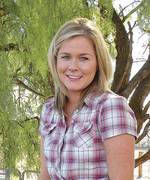Genetics could hold key to lamb survival
 Research Research
University of Adelaide researchers believe that genetics, together with better ewe nutrition and shelter, could hold the key to improving lamb survival rates in Australia. PhD student Kate Lennon from the University's School of Animal and Veterinary Sciences said that 20% of newborn lambs currently do not survive beyond a few days due to starvation, cold exposure, poor mothering and lambing difficulties. But evidence shows that genes play a major role in determining which lambs are more likely to withstand cold temperatures. "The genes relating to cold resistance are passed on in more than 70% of cases, so if we can indirectly select for this trait in the breeding process we will go a long way towards improving survival rates," Ms Lennon said. Kate is currently working on a collaborative experiment to identify a practical indicator of cold resistance using two breeds - the Merino and Border Leicester - with known differences in both cold resistance and survival rates. The Sheep CRC and the South Australian Research and Development Institute (SARDI) are partners in this project. "The Merino is well known for having a very low tolerance to the cold and consequently its survival rates during inclement weather are also poor. In contrast, the Border Leicester exhibits higher cold resistance than most breeds in Australia." PhD supervisor Professor Phil Hynd said economic losses due to lambs dying cost the sheep industry an estimated $60 million per year. "But we are also concerned about the suffering involved," Professor Hynd said. "Our goal is to breed sheep that are better equipped to withstand poor weather." Kate is in the final year of her PhD project and expects to have conclusive results on her genetics study by the end of 2010. Her Honours project on lamb survival won her the coveted RSPCA Australia Scholarship for Humane Animal Production Research in 2007. She has also been awarded a Postgraduate Scholarship from the Sheep CRC and an Australian Postgraduate Award from the University of Adelaide for her excellence in research. Story by Candy Gibson
|






